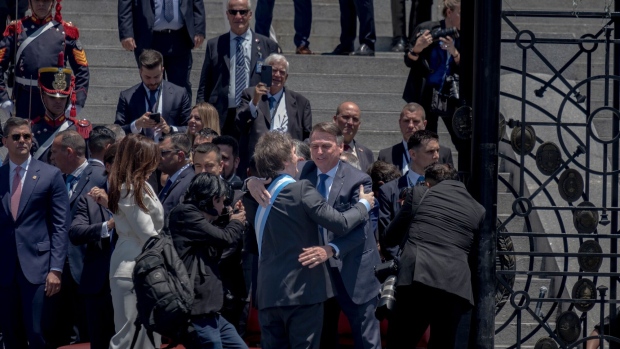
Argentina's Javier Milei and Brazil's Luiz Inacio Lula da Silva represent radically different economic models. Milei advocates for gutting public spending, selling state-run companies, and slashing regulations, while Lula seeks to increase spending, revitalize state companies, and strengthen regulations. The clash between the two leaders reflects the ideological divide between their countries. Investors are watching closely to see which economic vision will prove more successful.
Milei's promises of austerity and deep reforms have caught attention in Argentina, where the country continues to grapple with economic challenges and political polarization. His anti-establishment stance and free-market policies have resonated with a growing number of citizens who are frustrated with traditional political parties and institutions. Milei has amassed a significant following on social media and has announced his candidacy for the Argentine Congress. However, his controversial statements and confrontational style have also attracted criticism and raised concerns about his ability to govern effectively.
On the other hand, Lula, a former president of Brazil, has backed down in his battle with Brazil's central bank and has pursued more moderate policies. He seeks to increase spending, revitalize state companies, and strengthen regulations as a means to stimulate economic growth and reduce inequality. Brazil's economic performance has soured investor sentiment, and Lula's approach is seen as a potential solution to the country's challenges.
The clash between Milei and Lula embodies the competing economic views in Latin America. Milei's advocacy for austerity and deep reforms aligns with the neoliberal ideology, emphasizing limited government intervention and free-market principles. Lula, on the other hand, represents a more interventionist approach, focusing on state intervention and social policies to address economic inequality.
The outcome of this clash will have implications not only for Argentina and Brazil but also for the developing world and the competition between the US and China for food, energy resources, and economic dominance. Investors are closely monitoring the economic performance of both countries to determine which economic model will prove more successful.
[47935a71]